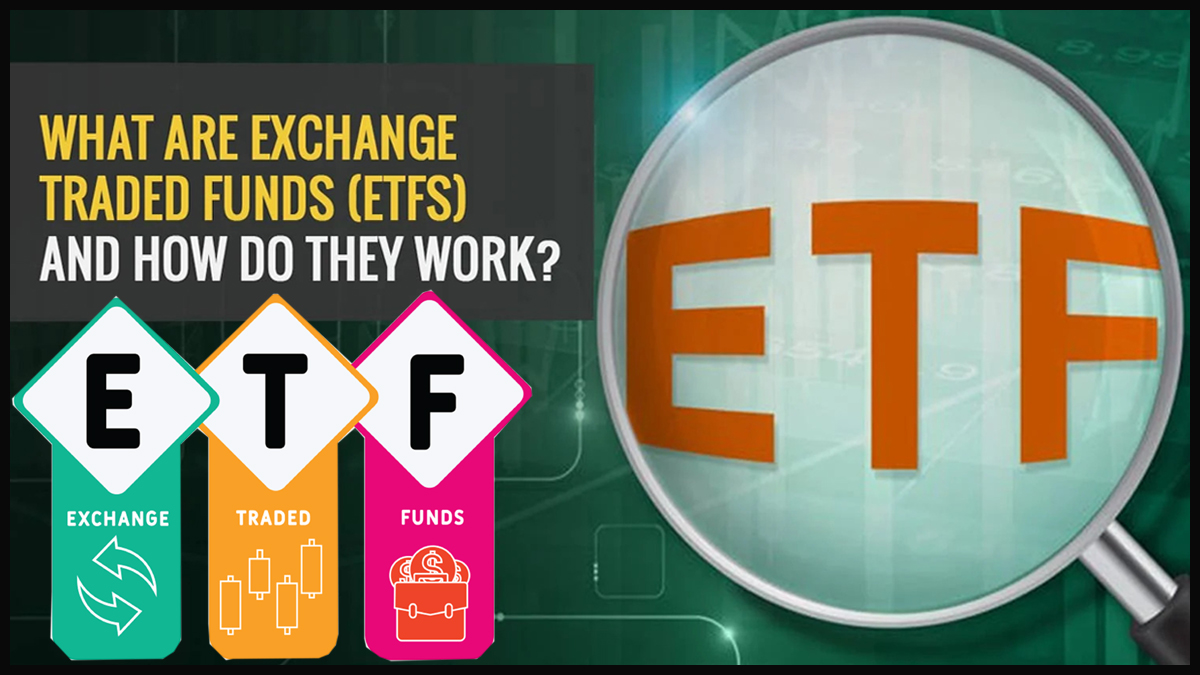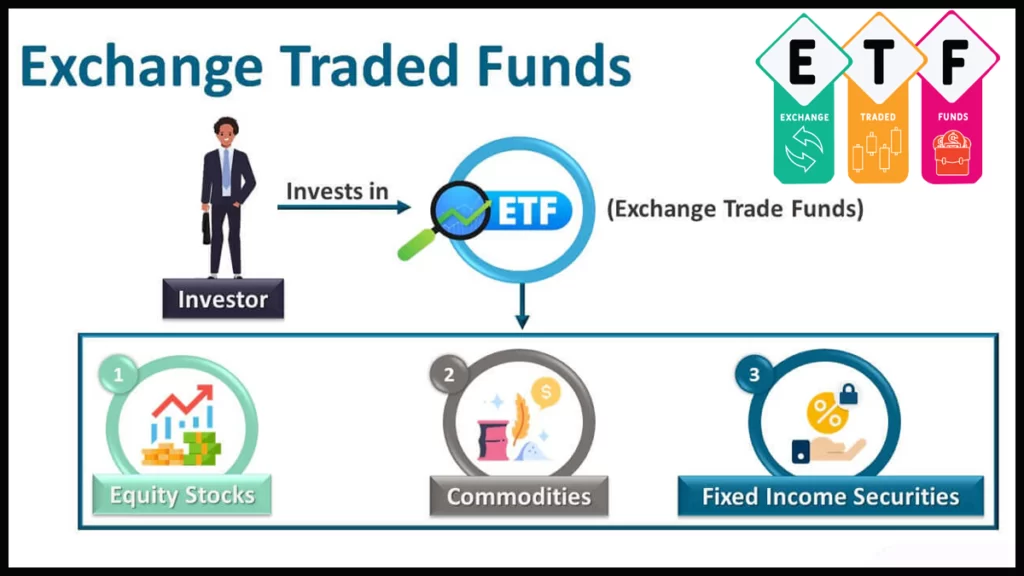
The Ultimate guide to Exchange-traded funds
How to pick the right Exchange-traded fund for you
All about Exchange-traded fund
Exchange-traded funds (ETFs) are a type of investment fund that is traded on a stock exchange. ETFs are designed to provide investors with exposure to a diversified portfolio of securities such as stock. Bonds, commodities or currencies, at a lower cost and with greater flexibility than traditional mutual funds.
Here are some key features of ETFs:
Diversification: ETFs offer exposure to a diversified portfolio of securities. Also which can help to reduce the risk of investing in individual stocks or bonds.

Transparency: ETFs are required to disclose their holdings daily, which allows investors to know exactly what they are investing in.
Low costs: ETFs generally have lower expense ratios than mutual funds, which means investors can keep more of their returns.
Liquidity: ETFs can be bought and sold throughout the trading day. And just like individual stocks, making it easy for investors to get in and out of positions quickly.
Tax efficiency: ETFs are generally more tax-efficient than mutual funds because they typically generate fewer capital gains.
There are different types of ETFs, such as index-based ETFs, sector-specific ETFs, bond ETFs, commodity ETFs, and more. Investors can choose the type of ETF that suits their investment objectives and risk tolerance.
To invest in ETFs, investors need to have a brokerage account, as they are traded on stock exchanges. Investors can buy and sell ETFs through their broker, just like any other stock. Some popular ETF providers include BlackRock/iShares, State Street Global Advisors/SPDR, and Invesco/QQQ.
Also Read – All about New York Stock Exchange
Here are some additional points about ETFs:
Passive investing: Most ETFs are passively managed, meaning they seek to track the performance of an underlying index or benchmark. This makes ETFs a popular choice for investors who want to invest in the overall market or a specific sector.
Active ETFs: In recent years, active ETFs have also emerged. Also which are managed by professional fund managers who aim to outperform the market or a specific benchmark.
Trading flexibility: ETFs can be traded throughout the trading day, allowing investors to react to market events quickly. They can also be bought on margin or sold short, which can be useful for advanced trading strategies.
Lower minimum investment: ETFs typically have lower minimum investment requirements compared to mutual fund. Also making them accessible to a broader range of investors.
No minimum holding period: ETFs can be bought and sold at any time during the trading day. And with no minimum holding period, giving investors greater flexibility.
The Ultimate guide to Exchange-traded funds
Risk considerations: Although ETFs can offer diversification, they still carry risks such as market risk. And liquidity risk, and concentration risk, depending on the specific ETF. Investors must to carefully weigh these risks before making a purchase.
Expense ratios: Although ETFs generally have lower expense ratios than mutual funds. Also some ETFs can have higher fees depending on the provider and the specific ETF. Investors should compare expense ratios across different ETFs before making an investment decision.
Overall, ETFs can be a useful investment tool for investors looking for diversification, low costs, and trading flexibility. However, investors should carefully consider the risks and expenses associated with any investment before making a decision.
Also Read – iPhones Made In India for the entire World!
Here are some more points about ETFs:
Creation and redemption: ETFs are created and redeemed by institutional investors called authorized participants (APs). And who exchange baskets of securities with the ETF provider in exchange for shares of the ETF. This mechanism helps to keep the ETF’s share price in line with its underlying net asset value (NAV).
Taxation: ETFs are taxed as Securities, which means they are subject to capital gains taxes. And when they are sold for a profit. However, ETFs are Generally more Tax-efficient than mutual funds. Also due to their unique structure and the fact that they are usually Passively managed.
International Exposure: ETFs can provide Investors with Exposure to international markets. And Allowing them to Diversify their Portfolios beyond their home country. There are ETFs that focus on specific regions, such as Europe, Asia, or Latin America. And as well as ETFs that provide Exposure to specific countries or regions.
The Ultimate guide to Exchange-traded funds
Customization: ETFs can be Customized to meet the specific investment needs of Investor. And such as those looking for Socially responsible investments or those who want Exposure to specific sectors or industries.
ETF vs. index fund: While ETFs and index funds both seek to track the performance of an Underlying index or Benchmark. ETFs are traded on stock exchanges like individual stocks. Also while index funds are priced at the end of the trading day. And can only be bought or sold through the fund Provider. ETFs also offer greater trading Flexibility and Transparency than index funds.
Market trends: ETFs have been growing in Popularity in recent years. Also with assets under management (AUM) Reaching Trillions of dollars Gglobally. ETFs have been particularly popular among individual Investors, as well as Institutional Investors such as pension funds and hedge funds.
Overall, ETFs offer Investors a wide range of benefits, including Diversification, low costs, trading Flexibility, and Customization. However, Investors should carefully consider the risks and Expenses Associated with any investment before making a decision.
The Ultimate guide to Exchange-traded funds
Also Read – Kidney: The role of kidneys in maintaining overall health

3 thoughts on “The Ultimate guide to Exchange-traded funds”